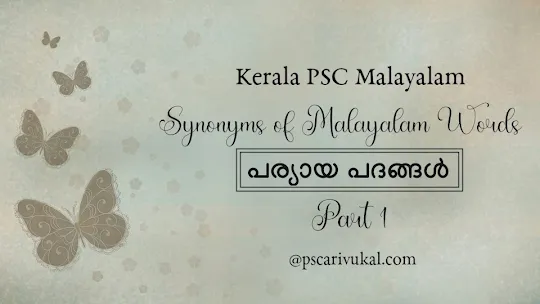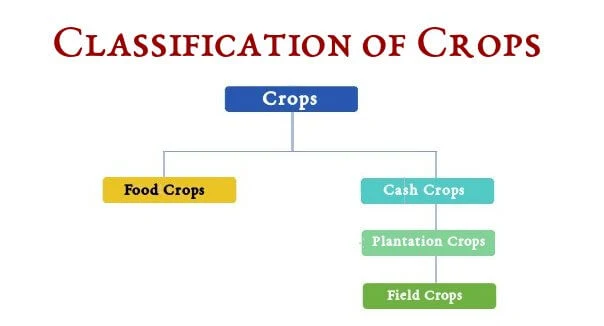This post lists some of the previous years' repeated PSC questions and answers on 'Reserve Bank of India (RBI).'
Reserve Bank of India (RBI)
- ഇന്ത്യൻ ബാങ്കിങ് സംവിധാനത്തെ നിയന്ത്രിക്കുന്ന ധനകാര്യ സ്ഥാപനം – RBI. (Previous Year PSC Question – Fire & Rescue Officer, Plus 2 Mains, 2023)
- Where is the Head Quarters of Reserve Bank of India? Mumbai. (Previous Year PSC Question – Junior Clerk-Cooperative Service Exam Board, 2014, Laboratory Technical Assistant – Banking Assistance(VHSE) 2015)
- ഭാരതീയ റിസർവ് ബാങ്കിന്റെ ആസ്ഥാനം – മുംബൈ. (Previous Year PSC Question – LD Clerk Prelims Stage II, 2023)
History
- The year in which the Reserve Bank of India Act Passed – 1934. (Previous Year PSC Question – Assistant Manager (F& A), Kerala State Co-operative Consumer’s Federation Ltd, 2014)
- When was Reserve Bank of India established? 1935. (Previous Year PSC Question – Junior Clerk Cooperative Service Exam Board, 2014, Clerk/Cashier, 2015, Junior Clerk, Primary Co-operative Banks, 2016, Laboratory Technical Assistant – Banking Assistance(VHSE) 2015; (Range Forest Officer (By Transfer) Prelims, 2023))
- The Chief Executive of RBI is called – Governor. (Previous Year PSC Question – Junior Clerk, Primary Co-operative Banks, 2016)
- Who is the new Governor of Reserve Bank of India? Shaktikanta Das.* (Previous Year PSC Question – Civil Excise Officer, 2014, Excise Guard /Women Excise Guard, Excise (Palakad, Thrissur), 2014)
- The Chairman of Reserve Bank – Shaktikanta Das.* (Previous Year PSC Question – Confidential Assistant Grade-II [Company, Corporation, Board] 2016)
- Reserve Bank of India was nationalized in – 1949. (Previous Year PSC Question – Junior Clerk, Primary Co-operative Banks, 2016)
- The first Governor of Reserve Bank of India – Osborne Smith. (Previous Year PSC Question –Ophthalmic Assistant Gr-II(Sr For SC/ST), Medical Education, 2018)
- The First Governor of Reserve Bank of India – (Previous Year PSC Question – Scientific Assistant – Chemistry(NCA-SC), Police(Forensic Science Laboratory 2016)
- (A) C.D. Deshmukh (B) B. Rama Rao (C) S. Jagannathan (D) P.C. Bhattacharya
- Long serving Reserve Bank Governor – Benegal Rama Rau. (Previous Year PSC Question – University Assistant, 2019)
- ഭാരതീയ റിസർവ് ബാങ്കിനെ (RBI) സംബന്ധിച്ചു താഴെപ്പറയുന്ന പ്രസ്താവനകളിൽ ശരിയായവ തിരഞ്ഞെടുക്കുക: (Previous Year PSC Question – Assistant Prison Officer, 2023)
- 1935-ൽ സ്ഥാപിതമായി
- ഒരു രൂപ മുതൽ എല്ലാ നോട്ടുകളും പുറത്തിറക്കുന്നു
- 1949-ൽ ദേശസാൽക്കരിച്ചു
- ആസ്ഥാനം മുംബൈ ആണ്
- (A) 1, 2 ഇവ ശരിയാണ് (B) 2, 3, 4 എന്നിവ ശരിയാണ്
- (C) 1, 3, 4 എന്നിവ ശരിയാണ് (D) എല്ലാം ശരിയാണ്
- Following statements are related to the history of RBI. Identify the wrong statement. (Previous Year PSC Question – Degree level Prelims, Stage 1, 2021)
- (A) RBI was set up on the recommendations of the Hilton Young Commission and started its operation on April 1, 1935
- (B) The accounting year of RBI during its inception was from July to June
- (C) RBI was a shareholder’s bank till it is nationalised in 1949
- (D) RBI was the Central Bank for Burma till April 1947
- ______is a bank which is included in the second schedule of the RBI Act. 1934 – Scheduled Bank. (Previous Year PSC Question – Clerk/Cashier, 2015)
Functions of the Reserve Bank of India
- The Central Bank is called____Bank – Banker's. (Previous Year PSC Question – Junior Clerk, Primary Co-operative Banks, 2016)
- Who regulates the money circulation in India? Reserve Bank of India. (Previous Year PSC Question – Junior Clerk Cooperative Service Exam Board, 2014)
- Who will Act as the Banker to the Govt.of India? Reserve Bank of India. (Previous Year PSC Question – Junior Clerk Cooperative Service Exam Board, 2014)
- The Bank that is known as ‘Custodian of Foreign Currency’ is – Reserve Bank of India. (Previous Year PSC Question – Stenographer, Drugs & Pharmaceuticals Ltd, 2014)
- ____is the custodian of foreign exchange reserve of India – Reserve Bank of India. (Previous Year PSC Question – Junior Clerk, Primary Co-operative Banks, 2016)
- The Custodian of National Rural Credit Stabilisation Fund is – Reserve Bank of India. (Previous Year PSC Question – Junior Clerk, Primary Co-operative Banks, 2016)
- In the banking sector, the lender of last resort is – Reserve Bank of India. (Previous Year PSC Question – Data Entry Operator, 2016)
- First paper currency issued by Reserve Bank of India in 1938 was – 5 Rupee Note. (Previous Year PSC Question – Research Assistant (Numismatics), 2023)
- Which of the following was the first paper currency issued by RBI? (Previous Year PSC Question – Tahsildar / Sr Superintendent (SR from SC/ST & ST), 2022)
- (A) Rs. 100 note (B) Rs. 5 note
- (C) Rs. 2 note (D) Rs. 1 note
- In India, Treasury bills are issued by – Reserve Bank of India. (Previous Year PSC Question – Laboratory Technical Assistant – Banking Assistance(VHSE) 2015)
- _______are always issued in favor of Reserve Bank of India only – Ad-hoc treasury bill. (Previous Year PSC Question – Superintendent In Government Commercial Institute, Technical Education, 2014)
- National Electronics Fund Transfer is under the control of – Reserve Bank of India. (Previous Year PSC Question – HSST Geography, 2023)
- Expansion and contraction of currency takes place through the______of RBI – Banking department. (Previous Year PSC Question – Superintendent In Government Commercial Institute, Technical Education, 2014)
- The following are the statements on RBI’s role on foreign exchange management. Identify the wrong statement. (Previous Year PSC Question – Clerk/Cashier 2024)
- (A) Rules on Current Account transactions are notified by the RBI
- (B) Specifying conditions for payment on Capital Account transactions
- (C) Provide licence as ‘Authorised Person’ to deal in foreign exchange
- (D) Giving guarantee or surety where foreign exchange transaction is involved
- The Reserve Bank of India has decided to withdraw from circulation all currency notes printed before the year 2005. What is the last date fixed by the RBI for the free exchange of these notes through banks? – January 1, 2015. (Previous Year PSC Question – Assistant Grade II, Kerala Veterinary University, 2014)
- Which Institution launched a new saptech initiative named DAKSH? RBI. (Previous Year PSC Question – Junior Assistant (Accounts) (SR for ST), TCCL, 2023)
Monetary Policies of RBI
- The rate of interest payable on various deposits is determined by the – Reserve Bank of India. (Previous Year PSC Question – Junior Clerk Cooperative Service Exam Board, 2014)
- The most powerful tool used by the Reserve Bank of India to control inflation is – Raise interest rate and reduce currency supply. (Previous Year PSC Question – Secretary Cooperative Service Exam Board 2014)
- The rate at which RBI lends to the banks under liquidity adjustment facility is – Repo Rate. (Previous Year PSC Question – Laboratory Technical Assistant – Banking Assistance(VHSE) 2015)
- Which one of the following is considered as the ‘Policy Rate’ in the monitory policy statement of India? (Previous Year PSC Question – Clerk/Cashier 2024)
- (A) 180 days Government Bond Rate (B) 92 days Treasury Bill Rate
- (C) LIBOR Rate (D) Repo Rate
- Consider the following statements regarding monetary policy. (Previous Year PSC Question – Special Branch Assistant, 2022)
- 1. During the period of inflation, RBI cuts the CRR.
- 2. During the periods of depression, RBI hikes the CRR.
- Select correct statements.
- (A) Only 1 is correct
- (B) Only 2 is correct
- (C) Both 1 and 2 are correct
- (D) Neither 1 nor 2 are correct
- Which is the best policy combination for RBI to reduce money supply in the economy? (Previous Year PSC Question – Degree Prelims, Stage II, 2023)
- Reduce reverse repo rate, increase reserve ratio and open market sale of bonds.
- Increase repo rate, increase reserve ratio and open market sale of bonds.
- Reduce repo rate, reduce Bank rate and open market purchase of bonds.
- (A) (1) (B) (1 and 3) (C) (3) (D) (2)
- The SDF operationalized by RBI on 8th April 2022 – Replaced the Fixed Reverse Repo Rate as the floor of LAF. (Previous Year PSC Question – Computer Operator, 2023)
- The RBI's decision to reduce the Cash Reserve Ratio (CRR) primarily aims at –Increasing liquidity. (Previous Year PSC Question – Degree Level Prelims Stage II, 2025)
- Which among the following measures will reduce the supply of money in the economy? (Previous Year PSC Question – Degree level Prelims, Stage 1, 2021)
- (A) Purchase of Government Securities by RBI
- (B) Sale of Government Securities by RBI
- (C) Borrowings of the Central Government from RBI
- (D) None of the above
- The following statements are on Monetary Policy Committee. Identify the wrong statement. (Previous Year PSC Question – Clerk/Cashier 2024)
- (A) The inflation target for the present period is between 1% PA (lower) and 7% PA (upper)
- (B) The inflation target is fixed by the Central Government
- (C) The MPC have six members and came into existence in 2016
- (D) The MPC is required to meet at least four times in a year
Banking Ombudsman
- Banking Ombudsman is appointed by – Reserve Bank of India. (Previous Year PSC Question – Civil Excise Officer, 2014; Clerk-Typist, 2017)
- Who introduced the Banking Ombudsmen Scheme – Reserve Bank of India. (Previous Year PSC Question – Junior Clerk Cooperative Service Exam Board, 2014)
- The Banking Ombudsman Scheme was first introduced in India in – 1995. (Previous Year PSC Question – Laboratory Technical Assistant – Banking Assistance(VHSE) 2015; Clerk/Cashier 2024)
- Who will settle the grievances of customers of Banks? Banking Ombudsman. (Previous Year PSC Question – Junior Clerk Cooperative Service Exam Board, 2014)
- Which of the following statements is/ are correct? (Previous Year PSC Question – Clerk/Cashier 2024)
- (i) The RBI introduced an Integrated Ombudsman Scheme in 2021.
- (ii) The integrated Ombudsman Scheme covers Small Finance Banks, Payment Banks and Regional Rural Banks.
- (iii) The complainant must initially approach the bank and file a complaint; otherwise, complaint directly filed with the ombudsman would be non-maintainable
- (iv) A complainant can file a complaint before the Ombudsman through an authorised representative.
- (A) Only (i) and (iii) (B) None of the above
- (C) All of the above (D) Only (i), (ii) and (iii)
- The Integrated Ombudsman Scheme, 2021 cover all previous Ombudsman Schemes except (Previous Year PSC Question – Clerk/Cashier 2024)
- (A) The Banking Ombudsman Scheme, 2006
- (B) The Ombudsman Scheme for Non-banking Financial Companies, 2018
- (C) The Ombudsman Scheme for Foreign Banks, 2007
- (D) The Ombudsman Scheme for digital Transactions, 2019
📝 Read More: Reserve Bank of India (RBI)
* Updated according to the current statistics
Thanks for reading!!!







Post a Comment
Post a Comment